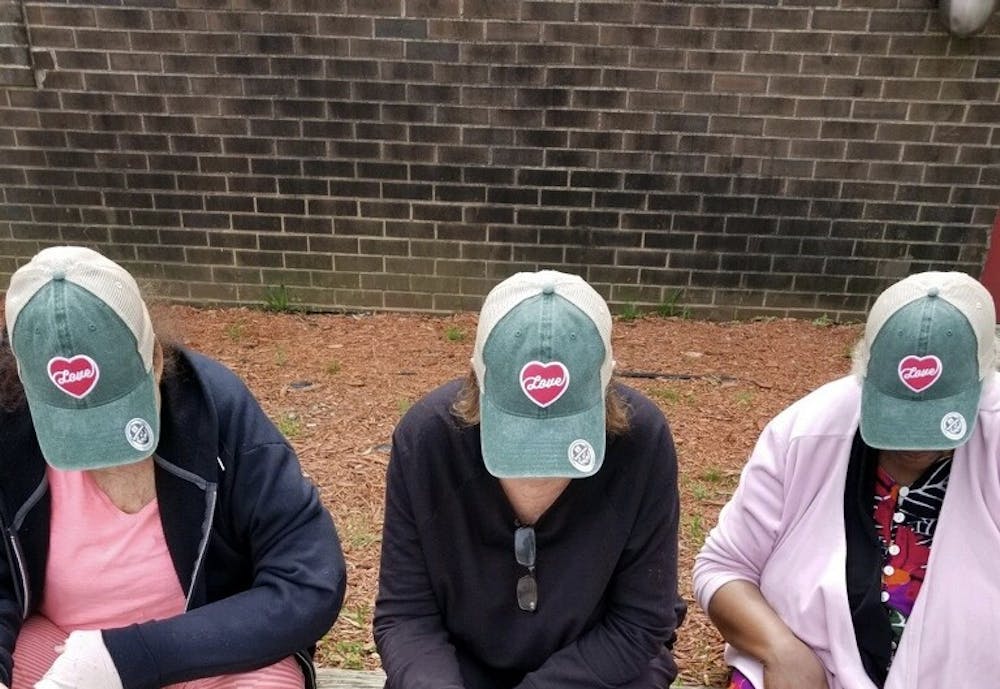Dr. Peter Morris, executive director of Urban Ministries of Wake County, explained that while it isn’t possible to move beds at the Helen Wright Center for Women because they’re bolted to the floor, not every bed is occupied. The center is housing 18 women now, compared to 52 on March 20, and is not accepting new admissions.
“It might seem odd to claim that having somewhat fewer women in the Helen Wright Center is responding to the community’s need, but it’s the right thing to do from a public health point of view,” he said.
Many women at the Helen Wright Center have moved to a healthy hotel, where they don’t have to share bedrooms and bathrooms, Morris said.
Joe Daly, director of marketing and development at Urban Ministries of Durham, said the shelter will move all of its residents to the Durham Marriott-RTP, where the Durham County Board of Commissioners has rented 225 rooms.
“Our executive director has been working closely throughout this process with county officials, city officials, public health experts and emergency services personnel, and there really is a consensus from the public health experts that the best way to enforce social distancing for our population in the shelter is by going this route,” he said.
Pierce said Housing for New Hope is prioritizing rapid rehousing, aiming to move 18 to 20 families per month as opposed to four to five families under typical conditions.
“One of the biggest challenges is we have to identify housing and so that means working with landlords, and it’s a challenge anytime in this area and in Durham in particular because of the cost,” he said.
Beyond housing is the struggle to continue necessary services during the pandemic.
Daly said Urban Ministries of Durham typically depends on 4,000 volunteers per year. While many staff members will move off-site to supervise operations, community members can still help prepare or serve meals.
Steve McCulloch, communications consultant for the Raleigh Rescue Mission, said the organization runs an in-person tutoring service for clients during the school year.
“Obviously that’s been suspended, so we’re trying to do some online tutoring, making sure that they’re keeping up with their work so once they can go back to school that they haven’t really missed out,” he said.
Raleigh Rescue Mission has partnered with agencies to provide mental health care virtually, McCulloch said.
To get the day's news and headlines in your inbox each morning, sign up for our email newsletters.
Morris said the Helen Wright Center used to have intake workers from some of the mental health and substance abuse agencies on-site, but because of the pandemic, these workers aren’t coming in anymore and the center’s staff has been restricted to referrals.
Stephani Kilpatrick, residential services director at the Inter-Faith Council for Social Service, said in an email that it’s important the center continues operating because it represents people's home and source of food.
“For many of us, this time is a matter of staying at home and missing out on certain activities,” she said. “But for IFC’s members, it could mean that basic needs are not met.”
McCulloch said Raleigh Rescue Mission wants to prepare people experiencing homelessness for life after the pandemic.
“These individuals are on their way to getting their life back together, getting a job, getting an apartment and getting back in the mainstream, and that’s our core mission," he said. "We’re there for them to be able to break that cycle of poverty or homelessness that they’ve been in and to be able to have a very thriving life."
@SLesnewski
@DTHCityState | city@dailytarheel.com




